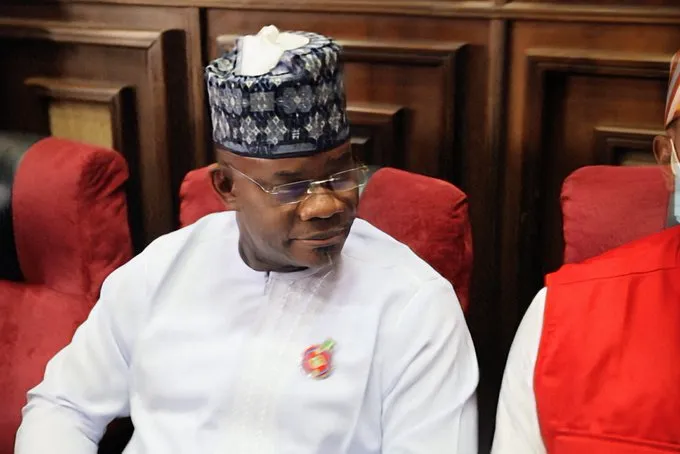The trial of former Kogi State Governor, Yahaya Adoza Bello, took a dramatic turn on Tuesday, November 11, 2025, as the Economic and Financial Crimes Commission (EFCC) revealed staggering cash movements in and out of Kogi State Local Government statutory accounts.
Bello, facing 19-count charges of money laundering totaling over ₦80 billion, is accused of orchestrating complex withdrawals and transfers from accounts meant for local government administration.
Seventh prosecution witness, Olomotane Egoro, a compliance officer with Access Bank, laid bare a web of suspicious transactions spanning January 2016 to January 2024.
Documents admitted as Exhibits 34(1) and 34(2) included the account’s administrative opening package and statements, showing repeated large cash withdrawals that raised red flags.
Egoro described a flurry of withdrawals in December 2018, including three separate ₦10 million lodgements to Aminu Jimoh Olarenwaju on December 21, followed by five more payments totaling ₦50 million just three days later.
The pattern persisted in 2019, with ten withdrawals of ₦10 million each on March 8 and ₦300 million pulled in favor of Abdulsalami Hudu on August 1. In a striking example, ₦300 million was deposited on July 31, 2019, only to be withdrawn the very next day — a movement Egoro described as “suspicious.”
The witness also presented the statement of Faza Business Enterprise (Exhibit 33(8)), showing that on May 6, 2022, the account received over ₦103 million from statutory revenue and VAT allocations from 11 local governments, with additional inflows of over ₦14 million from Ibaji and Dekina councils three days later, totaling roughly ₦117 million.
The money was later withdrawn in cash by Yakubu Adebenege Siyaka through a series of cheque transactions, leaving a paltry ₦1.4 million in the account.
The revelations paint a picture of a sophisticated operation involving large sums meant for local communities, now under intense scrutiny by the EFCC.
The court adjourned the matter to January 29 and 30, 2026, and February 4 and 5, 2026, for continuation of trial, as Nigerians await further details on how billions meant for local government administration allegedly flowed through private hands.














